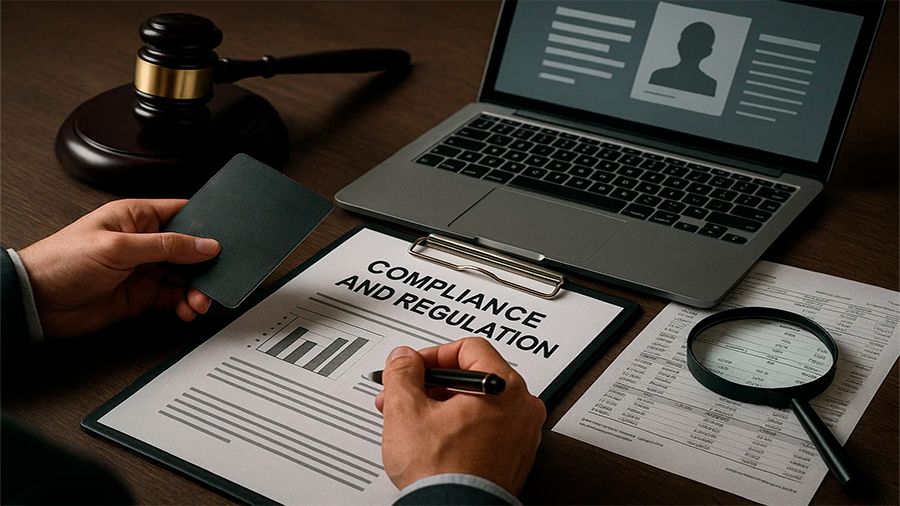How Auction Houses Check the Creditworthiness of Participants
Prestigious auctions involving art, rare gemstones, or luxury assets attract wealthy buyers, but reputation alone doesn’t guarantee payment. Auction houses need certainty that bidders can honor their commitments, especially when sales run into the millions. That’s why creditworthiness checks have become as important as catalog previews or authentication. In practice, these checks combine traditional financial reviews with modern compliance measures. Participants are screened not only for available funds but also for financial stability, reputation, and potential risks. Understanding how this process works reveals why it protects both buyers and sellers while keeping the auction market credible.
Why Creditworthiness Checks Matter
Auction houses operate in a high-stakes environment where one unpaid bid can disrupt the entire sale. Sellers expect fast settlement once the hammer falls, and buyers who default damage both trust and liquidity. To avoid this, auction houses verify the creditworthiness of participants before allowing them to register or bid on expensive lots. This process ensures that bids reflect genuine capacity, not speculation. It also safeguards the auction house’s reputation, since unpaid transactions can lead to legal disputes and market distrust. By screening financial health, auction houses filter serious buyers from opportunistic ones, making the entire system more stable. In many ways, creditworthiness checks are the invisible infrastructure that supports the glamour and speed of live bidding.
Beyond the Glamour
While the excitement of bidding draws attention, the careful vetting of participants behind the scenes is what makes high-value auctions possible. Without it, risk levels would overwhelm the system.
How Auction Houses Verify Financial Stability
Creditworthiness checks involve more than asking for bank statements. Auction houses typically use a combination of financial disclosures, references, and independent assessments. Wealthy clients may be asked to provide proof of liquid assets or lines of credit with recognized banks. For institutional buyers, balance sheets and annual reports often serve as the basis of evaluation. Some houses also employ external firms specializing in risk analysis to cross-check credit history and outstanding obligations. The goal is not to intrude but to ensure that a buyer’s enthusiasm matches their financial capacity. As transactions become increasingly global, cross-border checks also matter—verifying that a buyer’s funds are legitimate and accessible across jurisdictions. This process reduces the chance of disputes and ensures smooth settlement once the gavel falls.

Key Methods Used to Check Creditworthiness
| Method | Purpose | When Applied |
|---|---|---|
| Bank references | Verify liquid funds and available credit | For high-value individual bidders |
| Financial statements | Assess solvency and liabilities | For companies and institutions |
| Third-party reports | Independent review of credit history | For international buyers |
| Compliance checks | Ensure funds are legal and transparent | For all participants |
The Role of Compliance and Regulation
Financial screening today goes hand in hand with regulatory compliance. Auction houses must ensure that money used in transactions isn’t tied to fraud, corruption, or money laundering. Anti-Money Laundering (AML) and Know Your Customer (KYC) rules require firms to confirm the origin of funds and the identity of buyers. This adds another layer to creditworthiness checks, blending financial capacity with legality. The process often involves verifying identification documents, reviewing transaction histories, and flagging unusual patterns. For international buyers, compliance may also require coordination with regulators in different jurisdictions. These checks extend beyond the auction house itself, protecting sellers, financial partners, and the industry as a whole from reputational and legal risks.
Why Compliance Is Not Optional
Failing to comply with AML or KYC regulations can expose auction houses to fines and sanctions. Strong compliance makes creditworthiness checks both financial and ethical safeguards.
What Happens If a Bidder Fails a Credit Check
When a bidder doesn’t meet financial standards, auction houses have several options. They may limit the participant’s bidding power, allowing only smaller transactions. In some cases, a bidder may be required to deposit funds upfront or provide collateral. If doubts remain, the bidder may be excluded from high-value auctions altogether. While these measures may feel restrictive, they are designed to protect sellers and ensure the integrity of transactions. Failed credit checks rarely make headlines, but they are common behind the scenes. They illustrate that auctions are not just about who bids the highest, but who can prove they can pay reliably once the hammer falls.
Consequences of Failing a Creditworthiness Check
| Outcome | Implication for Bidder | Reason |
|---|---|---|
| Reduced bidding limit | Only eligible for lower-value lots | To minimize risk exposure |
| Deposit requirement | Upfront funds needed before bidding | Ensures liquidity and seriousness |
| Collateral request | Assets pledged against future payment | Secures potential obligations |
| Exclusion | No participation allowed | High risk or non-compliance |
The Impact on Market Dynamics
Credit checks shape not just transactions but the broader market. By filtering participants, auction houses create confidence that bids are real and enforceable. This stability attracts sellers willing to consign valuable assets, knowing that payment will not be an issue. For buyers, it ensures fair competition, as only financially credible participants can place high-value bids. Without this process, the risk of defaults would discourage consignments, lower trust, and reduce overall market liquidity. Thus, creditworthiness checks indirectly sustain high prices and strong demand. They are not just back-office procedures but central pillars of the auction economy.
Ripple Effects
Every verified bidder strengthens trust in the system, encouraging more sellers to participate. The result is a self-reinforcing cycle of credibility, supply, and competitive bidding.
Forward-Looking Outlook
As auctions become more digital and global, creditworthiness checks will evolve. Online platforms attract a broader base of participants, many of whom have never engaged in traditional auctions. This increases the importance of automated credit assessments and digital compliance tools. Blockchain-based identity verification and real-time credit scoring could become common, speeding up the process while maintaining accuracy. Auction houses may also form partnerships with banks and fintech firms to streamline screening without creating bottlenecks. The future of auction finance will balance speed and inclusivity with the need for rigorous credit evaluation. For participants, this means greater transparency—and for the industry, it signals continued resilience in a world of increasing complexity.
The Next Evolution
Expect auctions to rely more heavily on digital tools that assess risk instantly. This will allow new buyers to enter the market while maintaining the same standards of reliability.
Conclusion
Creditworthiness checks are the hidden backbone of auction houses. They ensure that every bid is credible, every seller is protected, and every transaction meets legal and financial standards. By reviewing financial stability, verifying compliance, and managing risks, auction houses maintain trust in a market where single transactions can exceed millions. With globalization and digitalization, these checks are only growing in importance. For bidders, proving creditworthiness is not just a formality—it is a ticket to participate in one of the most competitive and prestigious markets in the world.





